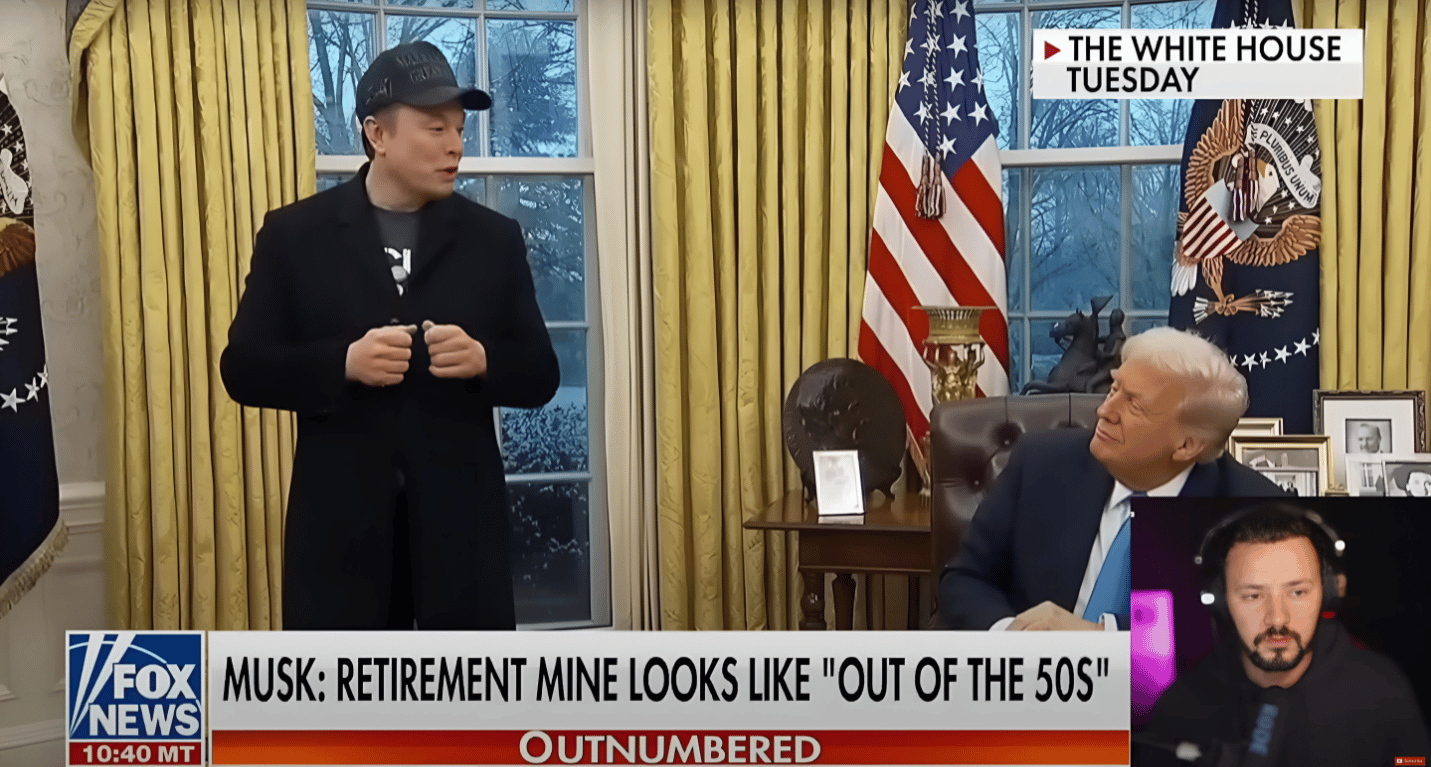In a startling revelation from the White House this week, billionaire Elon Musk, appointed by President Donald Trump to head the Department of Government Efficiency (DOGE), has exposed what he describes as massive inefficiencies and potential fraud within the Social Security Administration that could impact millions of Americans who rely on these benefits.
Underground Mine Processes Retirement Applications Like It’s 1955
Perhaps the most shocking revelation came when Musk described how federal retirement applications are literally processed in an underground limestone mine in Boyers, Pennsylvania. Initially thought to be a metaphor for outdated systems, video footage confirms this is the actual process used since 1955.
“All the retirement paperwork is manual on paper, it’s manually calculated then written down on a piece of paper, then it goes down a mine,” Musk explained during a press conference in the Oval Office. “The limiting factor is the speed at which the mine shaft elevator can move, which determines how many people can retire from the federal government.”
According to Musk, this antiquated system limits processing to just 10,000 retirement applications per month, creating massive backlogs and delays for federal workers wanting to retire.

The underground limestone mine in Pennsylvania where federal retirement paperwork is physically stored and processed.
Claims of “Ghost” Social Security Numbers
Musk also made headlines by claiming there are Social Security numbers active for individuals allegedly 150 years old, suggesting massive fraud in the system.
“We’ve got people in there that are about 150 years old,” Musk stated. “Do you know anyone that’s 150? I don’t. They should be in the Guinness Book of World Records.”
While some media outlets initially labeled these claims as “baseless,” a 2015 report actually confirmed Social Security numbers active for 6.5 million people over the age of 112 – a demographic that realistically should not exist in such numbers.
According to Musk, his team at DOGE has identified approximately $50 billion per year – or about $1 billion per week – in what they consider “unequivocal and obvious fraud” within Social Security payments.
Republicans Push to Speed Up Social Security Fairness Act Payments
Meanwhile, congressional Republicans are pressuring the Trump administration to expedite payments under the recently passed Social Security Fairness Act, which eliminates the Windfall Elimination Provision (WEP) and Government Pension Offset (GPO).
Signed into law on January 5th, the Act affects over 3.2 million retirees, including teachers, firefighters, and law enforcement personnel who are now eligible for increased benefits. However, the Social Security Administration estimates it could take over a year to process all retroactive payments.
Representative Clay Higgins has taken a leading role, urging Acting Social Security Administration Commissioner Michelle King to expedite the process, calling the current timeline “an unacceptable way to treat our elders.”
Budget Concerns: Will Social Security Be Cut?
As House Republicans propose a budget with $2 trillion in mandatory spending cuts, concerns have emerged about potential impacts on Social Security, which makes up about 21% of the federal budget.
However, U.S. law prohibits Congress from passing a reconciliation bill that contains recommendations to change programs under the Social Security Act. President Trump has also repeatedly pledged not to cut Social Security benefits during his campaign.
According to Alex Bean, a financial literacy instructor at the University of Tennessee at Martin, “Until we have a more specific listing of just what the proposed cuts will be for the administration, there’s no way of saying for sure what it will mean to recipients’ bottom lines.”
Kevin Thompson, finance expert and CEO of 9A Capital Group, adds that despite the widespread cuts needed to meet the House Republican’s budget, “It’s not politically advantageous… Nobody wants to base their political career on cutting Social Security when they know there’s bipartisan agreement those that have paid into this their entire lives need these benefits.”
What Does This Mean for Beneficiaries?
For the over 70 million Americans who receive Social Security benefits, these developments could have mixed implications:
- Potential fraud reduction could strengthen the long-term viability of the Social Security trust fund
- Modernization of systems could eventually lead to faster processing of applications and claims
- Retroactive payments from the Social Security Fairness Act may be delayed, but are still coming
- Core benefits appear protected from budget cuts in the current proposals
Those eligible for retroactive payments under the Social Security Fairness Act are advised to act swiftly and submit applications as soon as possible, as those who file earlier may receive their payments sooner.
The Road Ahead
With the Trump administration and Elon Musk bringing unprecedented scrutiny to Social Security administration in just their third week in office, more changes appear likely on the horizon. Musk has signaled that his team intends to modernize systems, eliminate fraud, and improve efficiency without cutting benefits to those who have earned them.
“Your tax dollars need to be spent wisely on things that matter to the people,” Musk emphasized. “It’s not Draconian or radical. I think it’s really just saying let’s look at each of these expenditures and say is this actually in the best interest of the people.”
As these initiatives develop, Focus Point News will continue to monitor and report on changes that could affect millions of Americans who depend on Social Security benefits.
